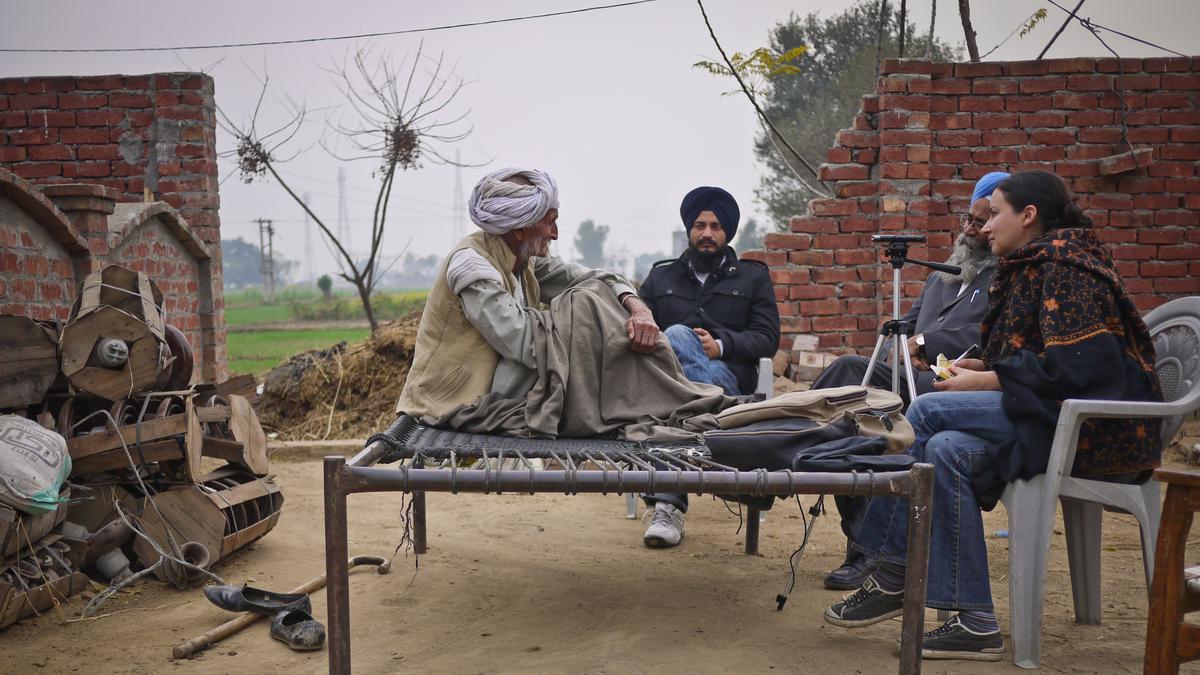
Stories of the Partition of India, based on the largest South-Asian oral history survey ever, now compiled in a book Premium
The Hindu
Stories of India-Pakistan Partition as oral recorded history in 1947 Partition Archive’s book 10,000 Memories
The story of Amarjit Kour Itten is bookended by two photographs. In the first, she is a young woman in a Parsi gara sari wearing a filigree gold necklace and jhumkas, staring calmly into the future. The second is a studio portrait in Delhi with her husband and children. Between the two, she has lived a life pockmarked with good times and bad, bloodshed and peace. The one thread that remained constant was her search for home. Born to a wealthy jeweller in Balochistan, Amarjit had a halcyon childhood until the family left home for India in the days ahead of Partition. An enduring memory of that time was the family buffalo that followed their truck, heading to the border, as far as it could. By the time they arrived in Delhi’s Karol Bagh via bloodied trains through Multan and Jaipur, their sandals and souls were frayed both from the journey and the apocalypse they had survived. Amarjit raised her family in West Patel Nagar and then nearly lost it all again during the 1984 anti-Sikh riots.
Amarjit’s story is one among the many that makes up the canon of Partition chronicles and is part of the first volume of 10,000 Memories by the 1947 Partition Archive, a global non-profit founded in 2010.
The cleaving of India forced the largest migration in history and 75 years later, it is still spoken of as a time when things fell apart — homes, relationships, identities. Partition heavily influences the spirit of India, Pakistan and Bangladesh, and the people who lived through it. Refugees snaked their way across the Radcliffe Line carrying their sparse belongings, trauma, anger and nostalgia. Some built their lives with the robust optimism that came to be the hallmark of the Partition survivor while others waited for a redemption that never came.
“Nearly 400 such lived experiences of the final years of the British in India, the effect of the Second World War, Independence and Partition took two years to compile in the first volume. We will have close to 30 volumes when we finish,” says Guneeta Singh Bhalla, founder of the archive, enroute to the US after launching the book in cities across India last month. This month the book will be released across the US and UK.
Guneeta, an Indian-American from California and a post-doctoral fellow in Physics, was inspired to chronicle these stories by her grandmother’s experience and a visit to the Hiroshima oral testimony archives. “My grandmother fled the mayhem of 1947 Lahore. When she passed away, she took with her a slice of history. These are stories that had to be told, and heard, and it had to be done quickly as many of these voices are fast fading.”
The archive began with citizen journalists, most in their 20s, carrying their cameras across villages and cities to record 80 to 90-year-olds who had lived through these upheavals. Stories, photographs and video interviews came in thick and fast from India, Pakistan, Canada, Bangladesh, the US and the UK. The book was chiselled into shape by nearly 40 editors.
“The stories of the thousand oldest people in the archive were chosen first. Then we narrowed it down to regional, religious, ethnic, gender and class diversity. Photos were sourced from families, archives, the British Museum... We gave voice to survivors and recorded the stories in whatever way they wanted to tell it, leaving analyses to the historian,” says Guneeta.

Climate scientists and advocates long held an optimistic belief that once impacts became undeniable, people and governments would act. This overestimated our collective response capacity while underestimating our psychological tendency to normalise, says Rachit Dubey, assistant professor at the department of communication, University of California.












